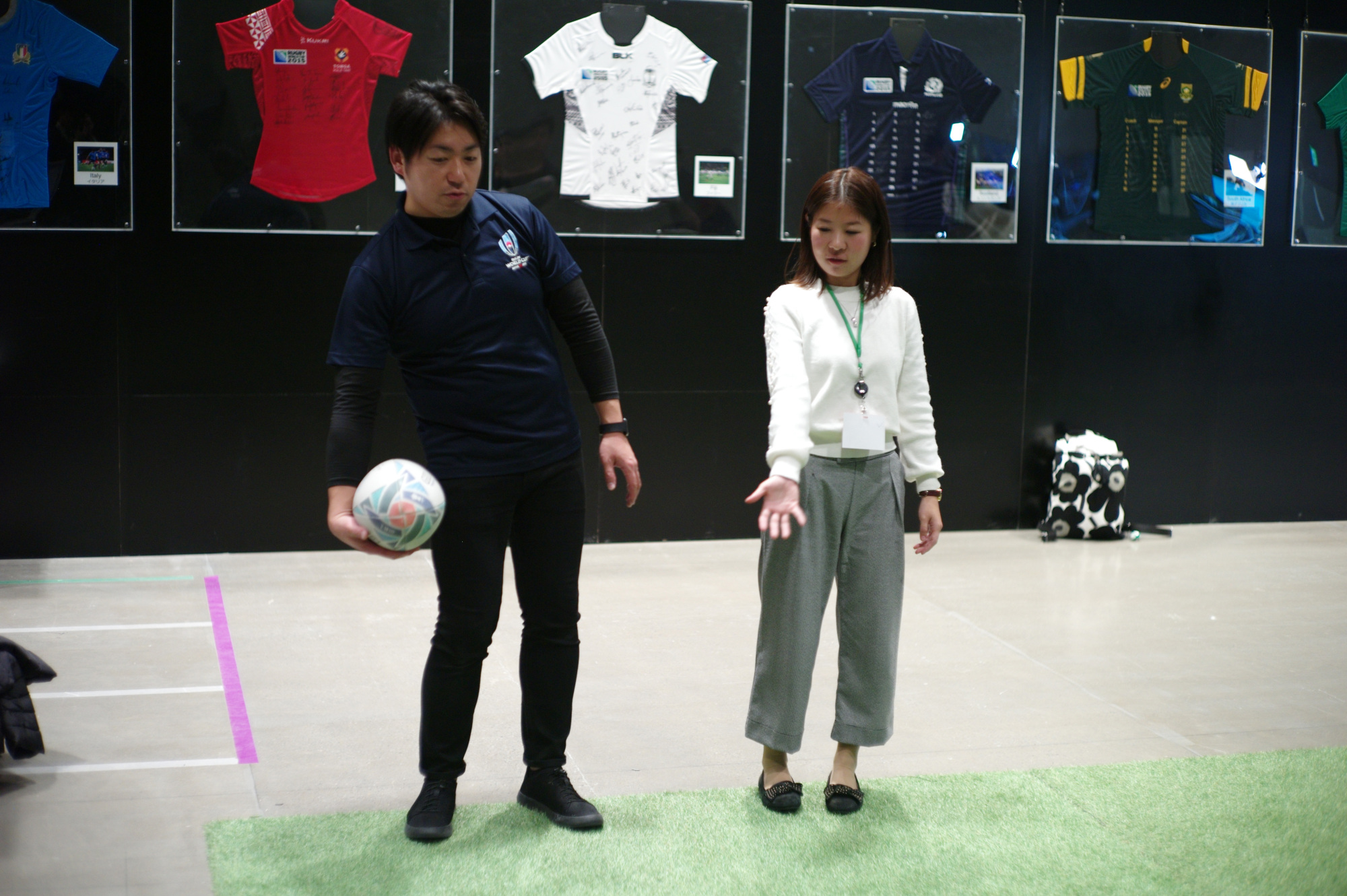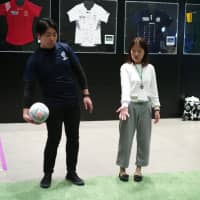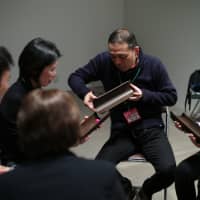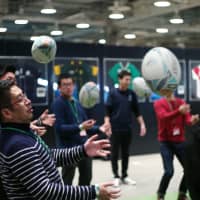Tokyo resident Masaru Seto knows why he wants to become a volunteer at the 2019 Rugby World Cup in Japan.
"I've been a rugby fan for 40 years," the 53-year-old service industry worker told The Japan Times at an interview session for the tournament's "Team No-Side" volunteer program in the capital earlier this week.
"I went to the first-ever Rugby World Cup, in New Zealand and Australia. Now Japan is hosting the ninth Rugby World Cup, and this is a once-in-a-lifetime opportunity. Up until now I have just been watching the tournament, but now I feel like I want to give something back. I want to make a contribution."
Rugby World Cup 2019 organizers have received a record number of over 38,000 applications from people looking to volunteer at the tournament, which will be played at 12 stadiums around Japan from Sept. 20-Nov. 2 next year.
Organizers are looking to recruit around 10,000 volunteers to assist in and around the venues and at train stations and airports, making it the largest such program in Rugby World Cup history. All 12 competition venues exceeded their volunteer targets.
Tournament officials have held interview sessions for potential volunteers in each host city, starting with Higashi Osaka in August and finishing with Tokyo this week. Over 3,500 applicants attended interviews in the capital over a five-day period that wrapped up Tuesday.
"We want people who are friendly, who are communicative," said Deborah Jones, the 2019 Rugby World Cup organizing committee's deputy director of tournament workforce. "Everyone who has applied has taken that first step. They want to do this. We're really looking for people who are going to be helpful, who will go out of their way to communicate and work as a team, and who will have fun and make sure the people around them enjoy it as well."
Each interview session began with a check-in process and an orientation video, before applicants were grouped into teams of seven to carry out a problem-solving exercise. Each team member was given a piece of plastic pipe of varying length and told to work together to pass a ball around the group in a circle.
After much conversation, debate and trial and error, some teams had developed a flawless understanding while others were left chasing the bouncing ball around the room.
"It was a lot of fun," said Seto. "There was a mix of men and women of all ages. There were people who I thought looked quite uptight or serious at first, but then they came up with a lot of ideas.
"Everyone had their own role. Even in a team of seven, there were people who came up with good theories and people who were more active. It was interesting to get lots of different people and come together as a team. I was a little bit nervous at first but I really enjoyed it."
Applicants were then asked to have their photos taken for accreditation purposes and try on uniforms for size. The official volunteer uniform has not yet been designed, but all volunteers will wear the same outfit regardless of their role.
Applicants were also invited to throw a rugby ball around, giving some their first taste of a sport that is not widely known in Japan.
"I don't know much about rugby but I really want to help people coming to Japan enjoy their stay," said 19-year-old university student Nao Shigemura. "I do a lot of volunteer work so I want to help the tournament as a whole. I'm part of a volunteer group that teaches kids about nutrition. I've always loved doing that kind of thing so I'd like to be involved in this as well."
Foreign residents of Japan were also welcome to apply to become volunteers as long as they are able to communicate in Japanese. The fact that training will only take place inside Japan makes it difficult for those living overseas, but some made a special effort.
"I live in New Zealand and I love rugby," said Japanese national Yumiko Omura, who was visiting Japan with her family for a two-week holiday. "I also volunteered for the 2002 soccer World Cup in Japan and the 2011 Rugby World Cup in New Zealand.
"I love to meet people from all over the world, and I love sports as well. I worked in the media center at the 2002 World Cup, in an accreditation center. It was so nice to work with the other people and I'm still in contact with some of them."
Applicants who attended the interview sessions in each host city will be notified with the result in January next year. Successful applicants will then take part in training programs around Japan from February to September.
"In New Zealand, we hadn't previously had a major event volunteer program like the one we had for Rugby World Cup 2011," said Jones. "The impact was fantastic to see. The visitors from overseas loved it. It was the face of New Zealand. People were friendly, people were helpful. They went away with a great impression of New Zealand, and the volunteers themselves had a great time. It's the face of the Rugby World Cup.
"For Japan, there are over 400,000 people from overseas expected to attend here. If they see what you can see in the interview process, if that's the impression that they get of Japan and Japanese people, they'll leave here with a fantastic memory. They've got a really great opportunity to leave a lasting impression."






















With your current subscription plan you can comment on stories. However, before writing your first comment, please create a display name in the Profile section of your subscriber account page.